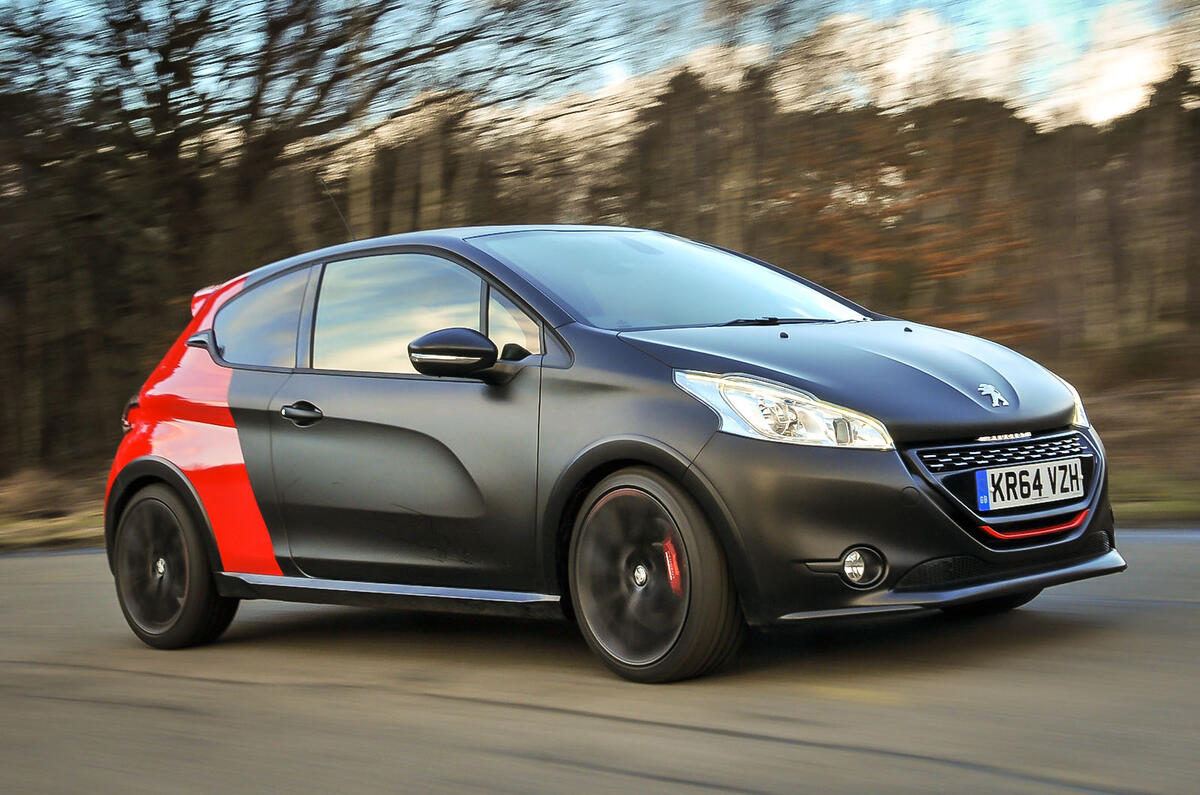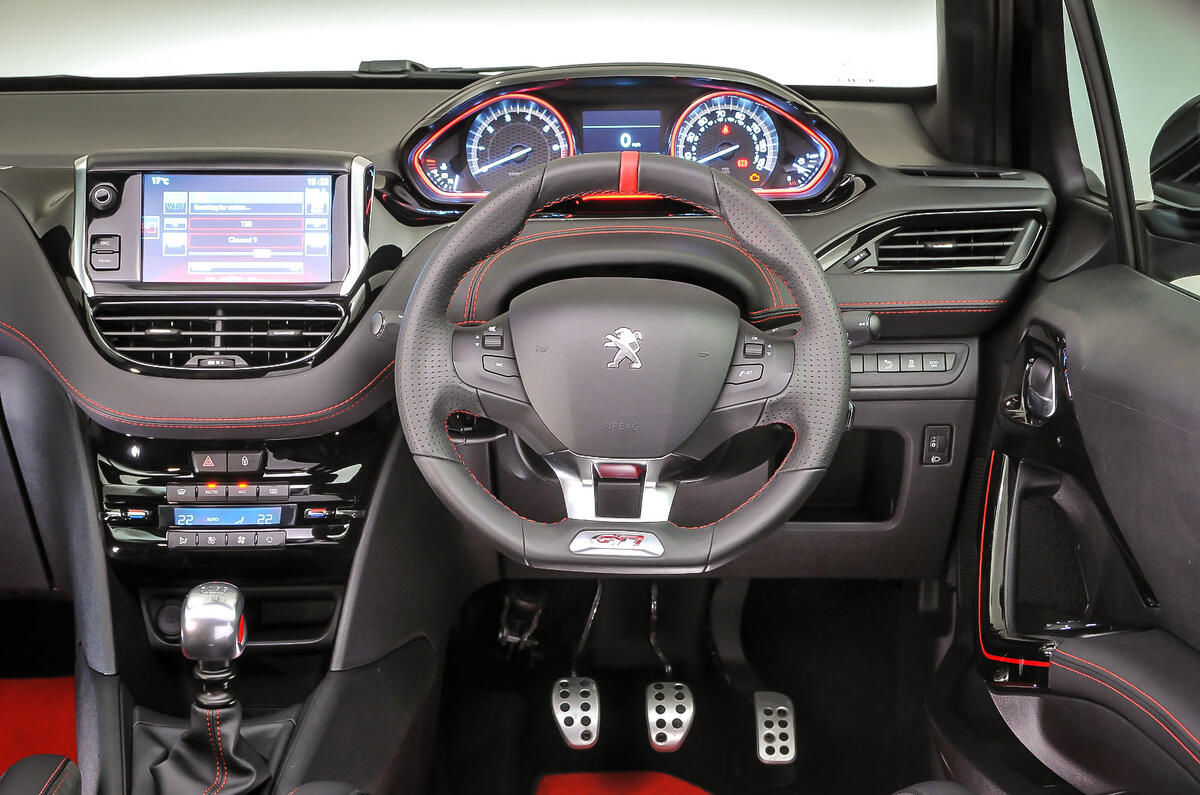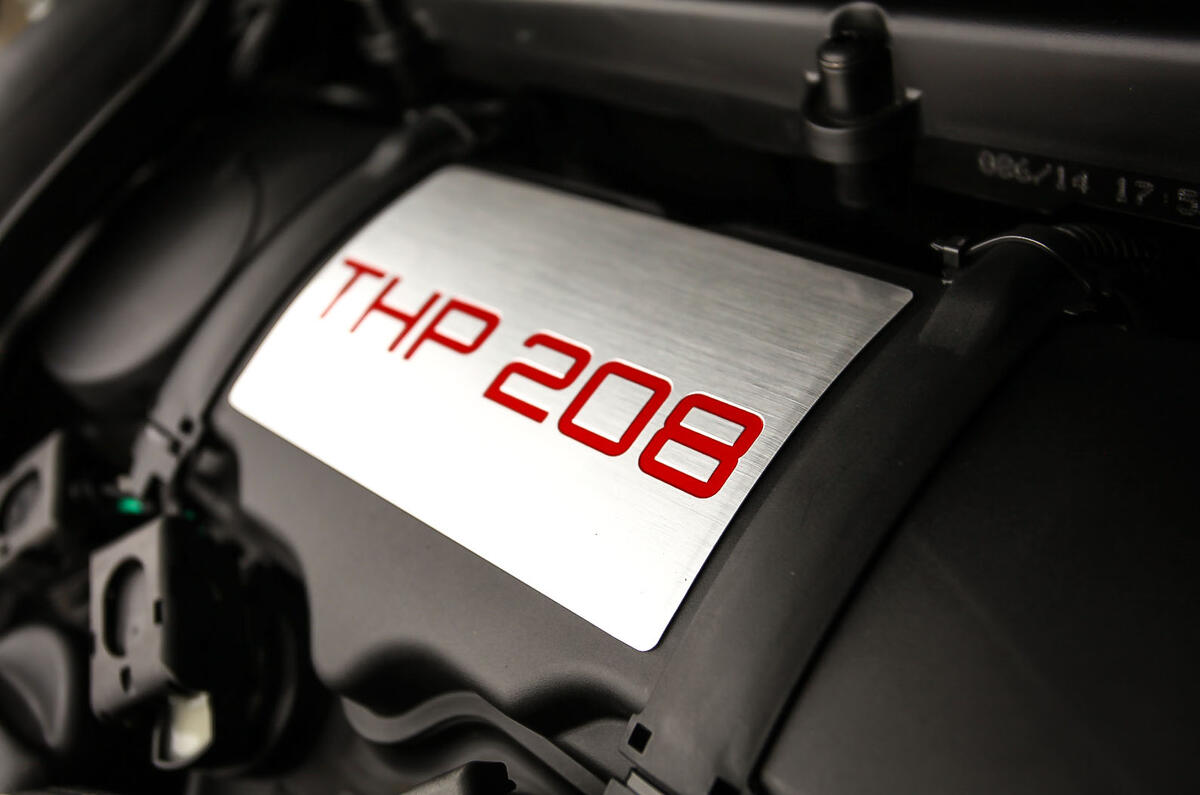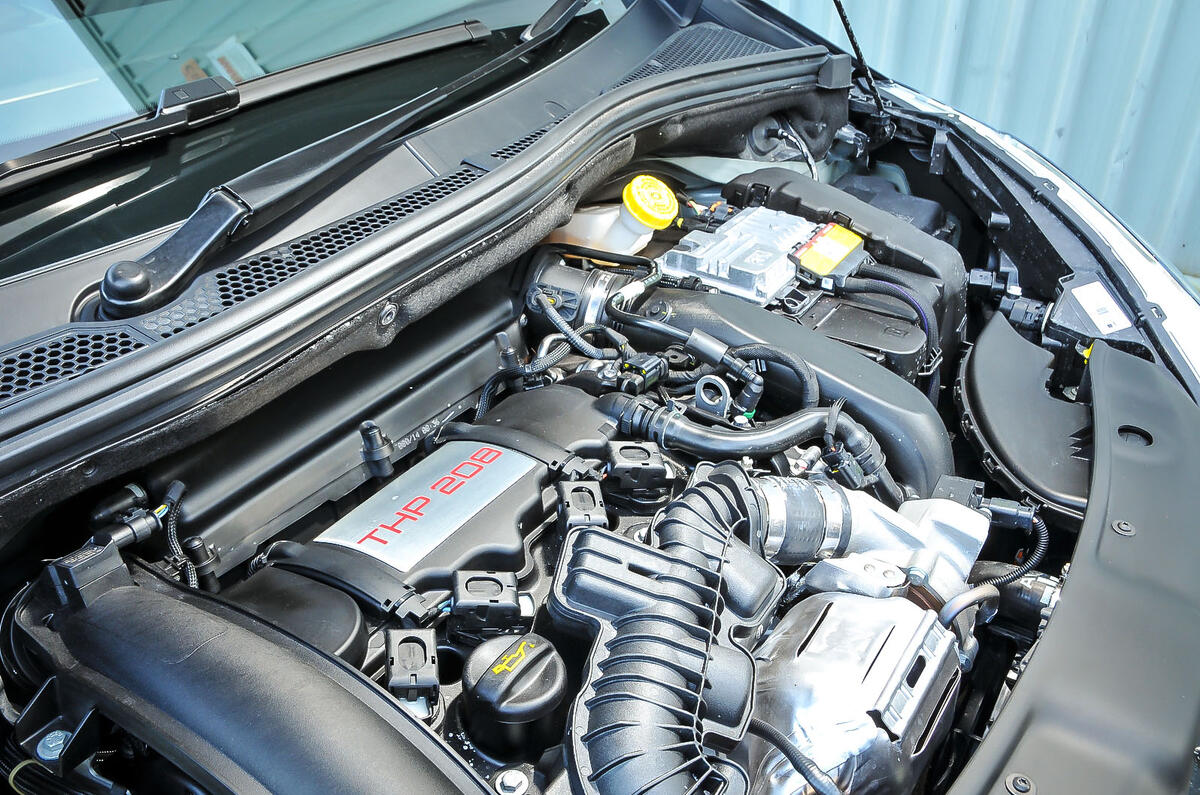Right out of the box, the 30th feels like a different prospect from the flawed but likeable 208 GTi. In standard fettle, the car complements its over-engined silliness with a benignly sprung, amenable attitude to ride comfort. The special-edition model jettisons the compromise, adopting instead the uncannily hard-bodied rebound of a much more single-minded product.
Keeping you stapled to the road surface is the old-fashioned name of the game here, no matter what rippling after-effects are felt in the cabin. There’s plenty of road noise to go with it, too. This is a car capable of making the Fiesta ST seem well isolated. Of course, Peugeot is reasoning that the enthusiast niche of potential buyers won’t bristle at such treatment as long as the results tell.
That these hardy souls will find the car an improvement is testament enough to the diff and wider tracks that it probably should have had in the first place. Where the standard model is a primitive, unruly steer to be cajoled around the place like a stroppy toddler, the GTi 30th is more appreciably in command of its faculties.
The diff itself (a looser affair than was applied to the RCZ R) doesn’t overawe the front end. It just competently permits the application of more power from much earlier in a corner. And given that there’s usually a surfeit of power, and now considerably more grip, it makes the 208 a plainly quicker prospect.
That’s as advertised, and as you might expect. However, unfiltered entertainment on the public road, of the kind meted out so effusively by the Ford, is in shorter supply than we’d hoped. There are a number of reasons for this, but the main one, and the most familiar, is the 208’s steering, which continues to be a bugbear.
















































